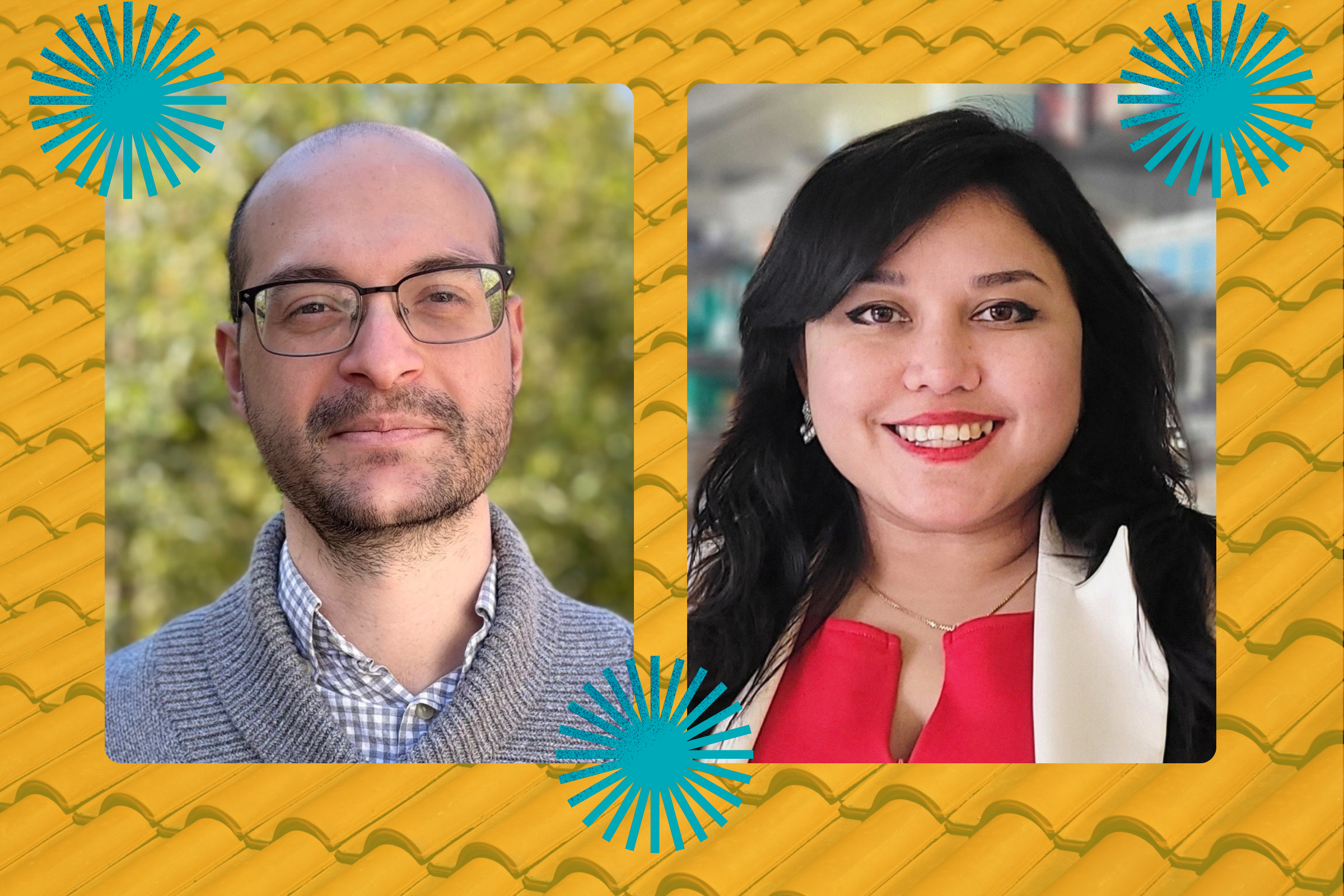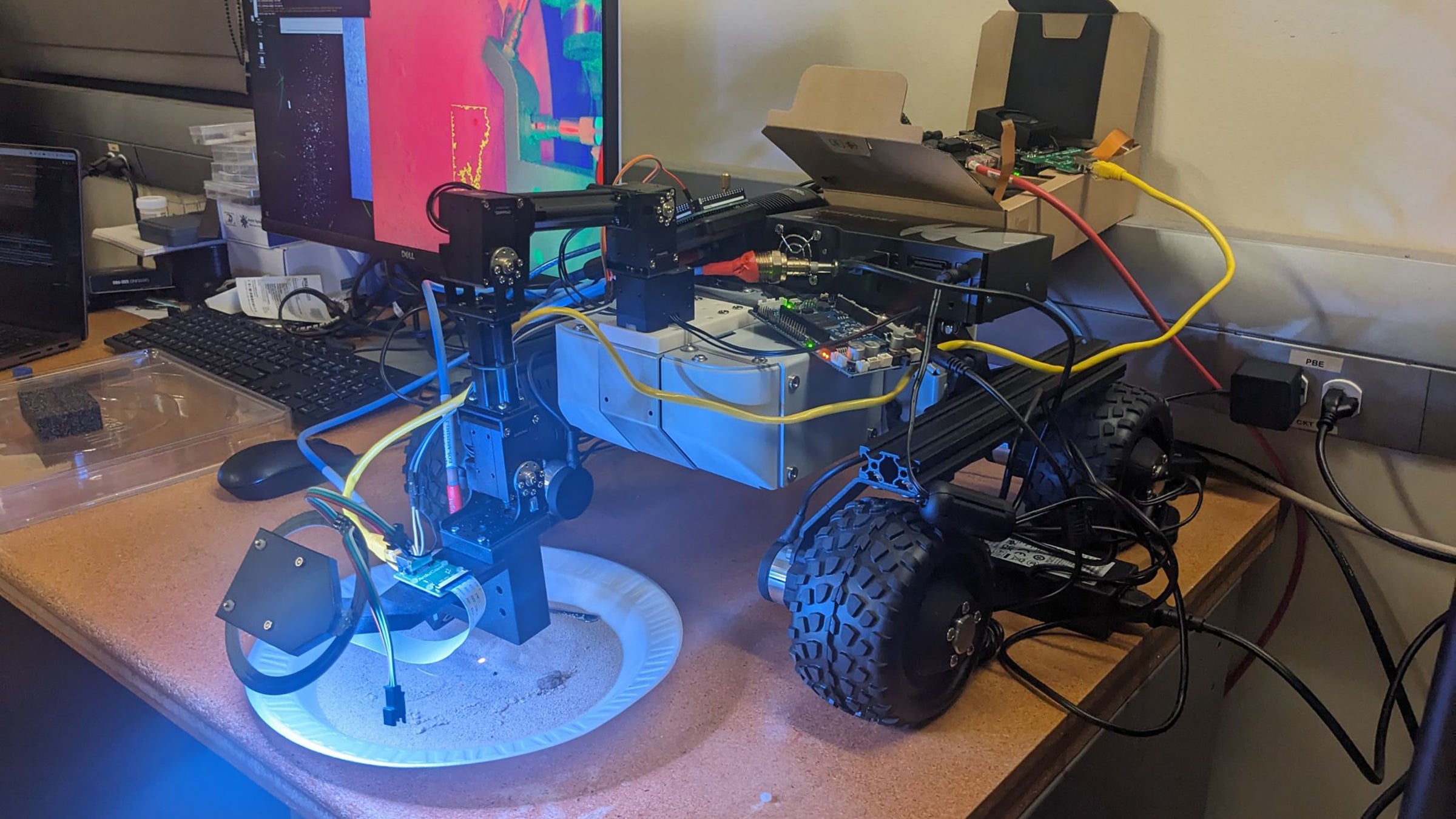Natural Sciences Welcomes New Faculty Across the College
Familiar faces and newcomers alike are among the 13 newest tenured and tenure-track faculty members joining the college.

The College of Natural Sciences is welcoming new tenured and tenure-track faculty members to its community. They are individuals who conduct exciting research into topics ranging from brain-computer interfaces to ecology, condensed matter physics to cancer, and mathematics to machine learning. One is now even leading the whole of the UT Graduate School.
Meet our newest faculty additions and learn what they will be contributing to Texas Science.

Sarah Ades, Dean of the Graduate School, Senior Vice Provost for Graduate and Postdoctoral Studies, Professor, Molecular Biosciences
Sarah Ades arrived at UT Austin from Penn State where she most recently was the associate dean for graduate student affairs and also served as a professor of biochemistry and molecular biology in the Eberly College of Science. She received the Penn State Teaching Fellow Award, the Alumni Association and Student Award for Teaching Excellence, and the C.I. Noll Award for Excellence in Teaching from the Eberly College of Science Alumni Society. Ades is the recipient of a Faculty Early Career Development Award from the National Science Foundation and a GlaxoSmithKline Discovery Fast Track Competition winner. She has also served on the editorial board for the Journal of Bacteriology.
Before her tenure at Penn State, she was a postdoctoral fellow at the Institut de Biologie Molecularie et Cellulaire in Strasbourg, France, and at the University of California, San Francisco. She received a bachelor’s degree in molecular physics and biochemistry from Yale University and a Ph.D. in biology from the Massachusetts Institute of Technology.

Kurtis Carsch, Assistant Professor, Chemistry
Kurtis Carsch will work to develop an interdisciplinary research program that combines synthetic inorganic chemistry with materials science, organometallic catalysis and organic chemistry. Carsch received a joint B.S./M.S. from Caltech and his Ph.D. from Harvard University. Serving as the Arnold O. Beckman Postdoctoral Fellow in the Institute for Decarbonization Materials at the University of California, Berkeley, Carsch will join the chemistry faculty at UT Austin in January.

Kelly Dorgan, Associate Professor, Marine Science
Kelly Dorgan’s research focuses on animal-sediment interactions, and it is at the interface of sediment ecology, invertebrate biology and sediment processes. She applies engineering tools to ecological questions and has developed novel methods to observe burrowing animals and measure their impacts on sediment structure. She collaborates with engineers to characterize how animals modify geoacoustic and geotechnical properties of sediments. Her work has broad applications to understanding seafloor stability, developing bio-inspired robots and linking form to function to understand the evolution of invertebrates. She completed her Ph.D. in Oceanography from the University of Maine and postdoctoral training at the University of California, Berkeley and Scripps Institution of Oceanography. She previously served on the faculty at Dauphin Island Sea Lab for more than 10 years.

Thomas Elston, Assistant Professor, Neuroscience
Thomas Elston is a systems neuroscientist interested in the neural foundations of cognitive control, which relates to our ability to align our behavior with our goals. The prefrontal cortex, a highly developed brain area unique to primates, plays a critical role in such control. However, the prefrontal cortex does not operate in isolation: complex cognition depends on the prefrontal cortex interacting with other brain areas. The goal of the Elston Lab is to understand how the prefrontal cortex interacts with other areas to facilitate aspects of cognitive control related to attention, decision-making and self-control in non-human primates. Through characterizing these mechanisms, the Elston Lab aims to create brain-computer interfaces that will enable scientists to directly interact with the physiology of cognition and improve the lives of people living with neurological disorders where cognitive control is impaired. Elston earned his Ph.D. in neuroscience from the University of Otago in Dunedin, New Zealand and, before joining UT Austin, was an Alexander von Humboldt Fellow at the University of Tübingen in Tübingen, Germany, and a postdoctoral fellow at the University of California, Berkeley.

Amanda Glazer, Assistant Professor, Statistics and Data Science
Amanda Glazer’s research focuses on developing causal inference and nonparametric methods, along with associated software and tools that address real scientific problems. While she has a wide range of interests, she is particularly drawn to problems that affect society, such as issues of discrimination and social justice. She also conducts research in sports analytics, having previously worked as a baseball operations analyst for the San Francisco Giants for four years. Glazer earned her Ph.D. in statistics from the University of California, Berkeley and her B.A. in statistics and mathematics from Harvard.

Felipe Gonçalves, Assistant Professor, Mathematics
Felipe Gonçalves’s research interests lie in the interplay of harmonic analysis and number theory, with focus on Fourier restriction inequalities, uncertainty principles, zeros and growth estimates of L-functions, modular forms, sphere packings, linear programming bounds and crystalline distributions. Gonçalves earned his Ph.D. from the Instituto de Matemática Pure e Aplicada, Brazil. He was previously an assistant professor at the University of Edmonton, Canada and the Universität Bonn, Germany, and will join the faculty in January.

Robert Joseph Griffitt, Professor, Marine Science
Robert Joseph Griffitt’s research centers around the study of the effect of anthropogenic contaminants on aquatic organisms. He focuses on molecular approaches, aimed at identifying the precise cellular and molecular pathways that are affected by different contaminants. His previous research projects have examined the effects of oil spills in the Gulf of Mexico. Griffitt earned his Ph.D. from the University of South Carolina and was previously a professor at the University of Southern Mississippi.

Xinping Hu, Professor, Marine Science
Xinping Hu specializes in carbon-cycle science in estuarine and coastal environments. His team uses state-of-the-art techniques to quantify seawater carbonate system parameters and investigate their variability and the factors that control these changes. Hu’s research aims to understand the effects of climate change on estuarine biogeochemistry, the coastal ocean carbon cycle and ocean acidification. Before joining UT Austin, he served as the Endowed Chair for Ecosystem Science and Modeling at the Harte Research Institute for Gulf of Mexico Studies at Texas A&M University-Corpus Christi. Hu earned his B.S. in chemistry from Peking University and his Ph.D. in oceanography from Old Dominion University. He is also a recipient of the NSF CAREER Award.

Lucas Mason-Brown, Assistant Professor, Mathematics
Lucas Mason-Brown specializes in representation theory, the branch of mathematics that deals with symmetry. He is particularly interested in the interface between representation theory and algebraic geometry, the study of shapes defined by polynomial equations. His long-term goal is to complete the classification of unitary representations of real reductive groups, a special class of symmetries of fundamental importance in quantum mechanics, Harmonic analysis and the Langlands program. Mason-Brown received his Ph.D. from MIT in 2020. Prior to joining the faculty at UT Austin, he was a postdoctoral fellow at the University of Oxford. He is a recipient of the George Mitchell Scholarship, the George Lusztig Prize, the Echoing Green Fellowship and the Nicholas Kurti Junior Research Fellowship. In 2019, he was named to Forbes’ “30 under 30.”

Mit Naik, Assistant Professor, Physics
Mit H. Naik works in the field of computational condensed matter physics and material science. His research investigates emergent quantum phenomena in materials through first-principles electronic-structure calculations. His research particularly targets electronic and optical excitations in nanostructured quantum materials. He obtained his Ph.D. in physics at the Indian Institute of Science, Bangalore, and held a postdoctoral position at the University of California, Berkeley. He recently received the 2024 Materials Research Society postdoctoral award for pioneering the development of computational methods to study excited states in complex material systems.

Andrew Weems, Assistant Professor, Molecular Biosciences
Andrew Weems’ research is focused on blebs, small bumps on cancer cells thought to aid in metastasis. His previous work has uncovered clues about the relationship between blebs and the proteins and lipids involved in survival signaling in cancer cells. As part of a $2 million CPRIT (Cancer Prevention and Research Institute of Texas) award, Weems aims to determine if bleb signaling explains a poorly understood form of drug resistance. He hopes to characterize the molecular mechanism regulating its activation and investigate its role in disease progression while testing the efficacy of therapy targeting this novel pathway. Weems earned his Ph.D. from the University of Colorado and completed his postdoctoral work at UT Southwestern Medical Center.

Yuling Yao, Assistant Professor, Statistics and Data Science
Yuling Yao’s research interests lie in Bayesian computation, Bayesian modeling, machine learning and causal inference. His previous work included applications modeling such phenomena as lead fallout in Paris, arsenic diffusion in South Asia, COVID-19 mortality in Bangladesh and galaxy clustering in the universe. He designs statistical and machine-learning methods, with a focus on model evaluation, aggregation, causal inference and prediction under misspecification. Some ongoing progresses are on cross-validation, stacking and hierarchical stacking and covariate imbalance. He develops algorithms and theories for fully Bayesian and approximate computations, including importance sampling, simulated tempering and annealing and multimodal MCMC sampling. His recent interest is in simulation-based and score-based methods for scientific computing, as well as the general framework of distribution aggregation flow. Yao was previously a Flatiron Research Fellow at the Flatiron Institute. He earned his Ph.D. in statistics from Columbia University.

Becca Young, Assistant Professor, Integrative Biology
Becca Young investigates how changes in gene regulation and function drive the diversity of traits observed across vertebrate species. Her research focuses on embryonic characteristics in frogs, maternal effects in birds and complex behaviors across various vertebrates. Her group explores the connections between phenotypic diversity and developmental, genomic and ecological variation, while also examining why some traits exhibit greater developmental and evolutionary variability than others. Young earned her Ph.D. from the University of Arizona and completed postdoctoral training at the Yale University Systems Biology Institute. Before becoming an Assistant Professor, she developed an experiential learning stream, EvoDevOmics, for the UT Austin College of Natural Sciences Freshman Research Initiative, which explores the EvoDevo origins of biodiversity through advanced bioinformatics and statistical analysis of ’omics-level data.



